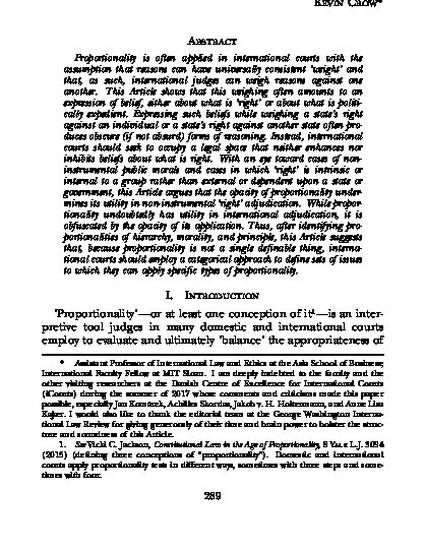
Article
The Opacity of Proportionality in International Courts: Could Categories Clarify?
Geo. Wash. Int'l L. Rev.
(2019)
Abstract
This article argues that, although proportionality has flimsy foundations in international courts, it nevertheless has utility. It takes issue with universalist champions of proportionality because they often assume that reasons can have universally consistent weight and that, as such, international judges can weigh them. Instead, international courts should occupy a legal space that neither enhances nor inhibits beliefs about what is right. With an eye toward cases of non-instrumental public morals and cases in which ‘right’ is intrinsic or internal to a group rather than external or dependent upon a state or government, this article argues that the opacity of proportionality undermines its utility in non-instrumental right adjudication. While proportionality undoubtedly has utility in international adjudication, it is obfuscated by the opacity of its application. In other words, proportionality’s utility must be more clearly located. Thus, after identifying proportionalities of hierarchy, morality, and principle, this article suggests that, because ‘proportionality’ is not a single definable thing, international courts should employ a categorical approach in deciding when to employ proportionality.
Keywords
- proportionality,
- ICs,
- international courts,
- instrumental morality,
- non-instrumental morality,
- balancing
Disciplines
- Law and
- International Law
Publication Date
2019
Citation Information
Kevin Crow. "The Opacity of Proportionality in International Courts: Could Categories Clarify?" Geo. Wash. Int'l L. Rev. (2019) Available at: http://works.bepress.com/kevin_crow/20/
